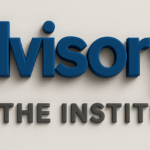“Digital is not about digital, it’s not about technology at all.” Those words caught my attention in an article written by Owen McCall who specializes in the delivery of value from technology.1
He quotes numerous research sources showing that between 70 and 90% of digital transformations fail. What is the answer? That is what I met with him to find out.
His insights are a cautionary tale in today’s VUCA environment (Volatile, Uncertain, Complex and Ambiguous).
Key themes in our discussion:
- Leaders are too focused on tasks – the mechanics of technology (what and how) – and not focused enough on WHY; why the organization exists and how technology can enable this.
- Incentives drive behavior – you can tell how executives are incentivized by watching what they do; what they prioritize.
- A singular focus on profit at the expense of customer and/or staff engagement will not optimize performance. There is enough evidence now, McCall points out, to show that companies with high customer advocacy and staff engagement outperform those with a singular focus on profit.
- When you have a clear goal and aspirational vision – why the organization exists – with a framework of metrics that show what is actually happening, you don’t need to tell people how to do their jobs.
He recommends that teams have some conflict within their metrics – this tension safeguards the team from singularity that may maximize performance but not optimize performance.
Maximize vs Optimize
You can deliver new technology but have you delivered value? While some fret over the definition of ‘done’, leaders focus on the definition of ‘value’. Value can only be defined in the context of why the organization exists. You can have outstanding performance across a narrow range of short term metrics but this can actually be at the detriment of value in the broader sense. You may not pay the price today, but there will be a cost.
The costs of lost value are often hidden from view but profound nonetheless in lost customer trust, staff disengagement and talent attrition. And think of how fragile reputation is in a digital world.
A good way to view technology is to ask how it can enable value in the broadest sense of the word: customer advocacy, sound leadership, employee engagement, talent attraction and retention, reliable systems and processes, supplier loyalty, shareholder returns…technology innovation can impact all areas so as to optimize organization outcomes.
The concern of the leader should be the extent to which the organization is fulfilling its value potential in line with why it exists.
The Leader’s Role
Owen McCall’s children were schooled at a Montessori school in their early years and he sees this as a relevant model for performance optimization.2 The role of the teacher is not to direct learning – do education to children or control their learning, but rather to prepare the classroom so that children can learn.3 Using this approach (which research shows improves ‘executive function’ i.e. the ability to adapt to changing and complex problems), the role of the leader is to set up the work environment for optimum performance.4 How many technology leaders see this as their role?Advice for New CIOs
Owen McCall’s advice for new CIOs is to focus on their capability to influence. Whether you are starting out as a CIO or joining a new organization as a seasoned CIO, you are only as effective as your influence across the organization.5
When you are regarded as a partner in co-creating technology solutions to deliver value, you are able to add real value. When you are a thought leader, however, you shape where the business is heading so that it is better able to fulfil its purpose and achieve its goals using technology, as a result of your influence.
This executive capability is focused away from the mechanics of technology and more towards the strategic landscape of the organization and the environment in which it operates.6
Disruption Distraction
McCall sees leaders obsess about digital disruption and they scramble to digitise. Instead, his advice is to focus on increasing customer engagement and fulfilling the organization’s reason for being, through technology. Focusing on the mechanics of a digital strategy takes the focus onto technology and delivery without enough scrutiny about the value it is adding to what really counts.
As Stephen Covey said, “Make the main thing the main thing.”7 Even if you deliver on time and on budget (maximized performance) unless you deliver real value (as defined by what the organization is there for) you are not optimizing performance and the technology function may be seen as not doing its job.
This should come as good news to those navigating through the chaos of volatility, uncertainty, complexity and ambiguity. The “Why?” question helps to filter out the noise and use technology to enable the organization to fulfill its potential, achieve its vision and reach its goals. This means less of the HOW of technology and more of the WHY.8
Sources:
- “We want to be digital but what does it mean?” by Owen McCall. May 29, 2017 https://owenmccall.com/we-want-to-be-digital/
- “Educational Principles at Work” by Owen McCall. 17 April 2017 https://owenmccall.com/educational-principles-at-work/
- “Montessori Builds Innovators” by Andrew McAfee. HBR. July 25, 2011 https://hbr.org/2011/07/montessori-builds-innovators
- “Research shows benefits of Montessori education” by The Guardian. Sep 29, 2006
https://www.theguardian.com/education/2006/sep/29/schools.uk - “Seven Habits of Highly Effective CIOs” by Owen McCall. 10 July 2016 https://owenmccall.com/7-habits-part1/
- “Seven Habits of Highly Effective CIOs Part 2” by Owen McCall. 12 July 2016
https://owenmccall.com/7-habits-part2/ - Covey, Stephen. The Seven Habits of Highly Effective People. https://www.stephencovey.com/7habits/7habits-habit1.php
- ‘Start with Why. Simon Sinek edited TedTalk. https://www.youtube.com/watch?v=IPYeCltXpxw
About the Author:
Tag/s:Digital Disruption






Trackbacks/Pingbacks